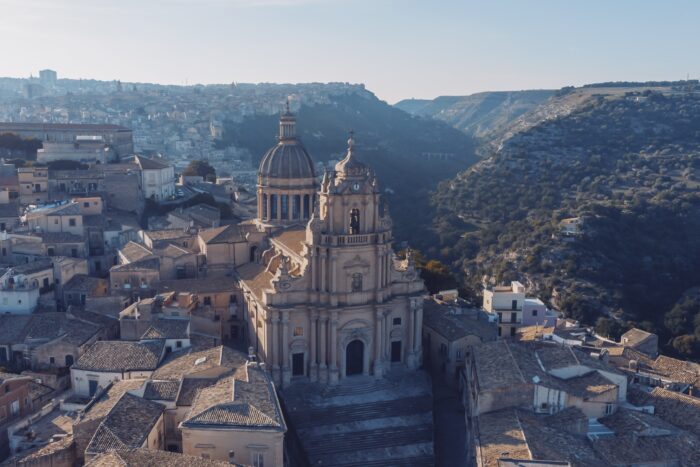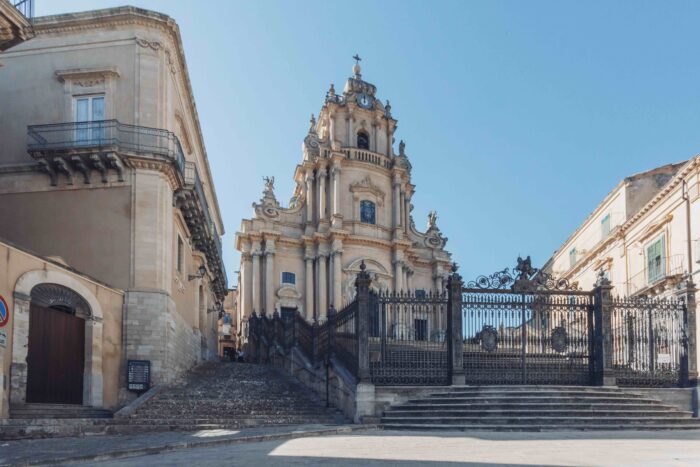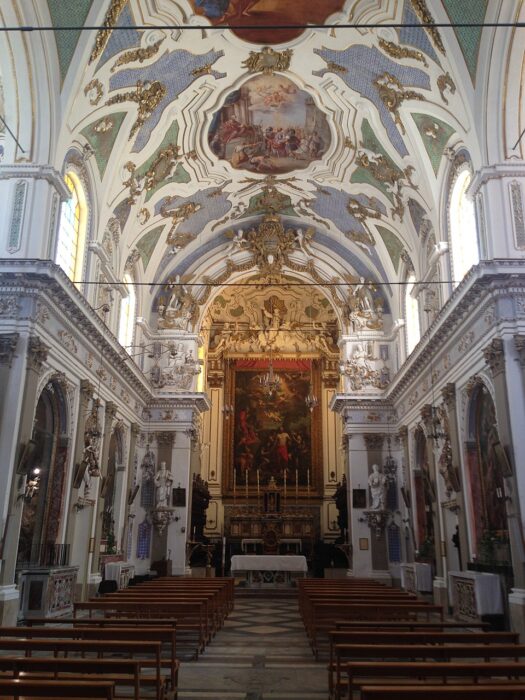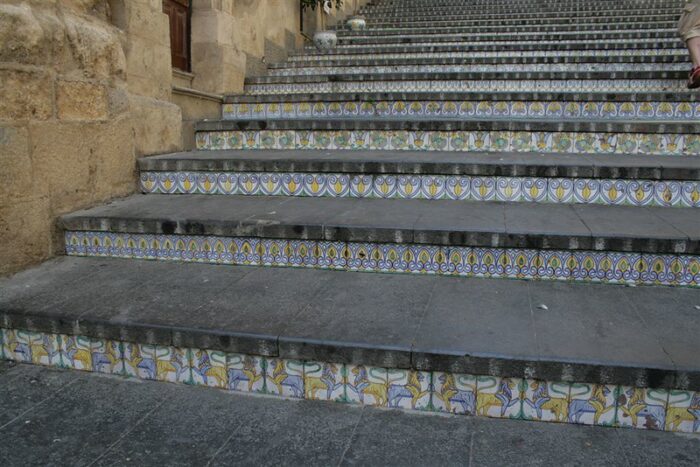Sicilian Baroque: 5 must-see stops for a journey through art and wonder
 A journey through Sicilian Baroque is an experience that fills your eyes with wonder and your heart with emotions. Among facades carved like lace, squares that tell centuries of history, and streets steeped in tradition, this itinerary will guide you to five unmissable stops: jewel-like towns, majestic cathedrals, and picturesque corners that have made Sicilian Baroque famous all over the world. Get ready for an adventure that blends art, culture, and authenticity, while breathing in the island’s truest soul.
A journey through Sicilian Baroque is an experience that fills your eyes with wonder and your heart with emotions. Among facades carved like lace, squares that tell centuries of history, and streets steeped in tradition, this itinerary will guide you to five unmissable stops: jewel-like towns, majestic cathedrals, and picturesque corners that have made Sicilian Baroque famous all over the world. Get ready for an adventure that blends art, culture, and authenticity, while breathing in the island’s truest soul.
In Sicily, Baroque is not just an architectural style: it is an emotion carved in stone. It is light caressing facades as delicate as embroidery, theatrical squares that look like opera stages, and the triumph of curvy balconies, volutes, angels, and grotesques. Sicilian Baroque is a journey that captures both the eyes and the soul, taking you through towns and villages that, after the devastating earthquake of 1693, rose again in a new, bold, and unmistakable beauty. Ready for an itinerary through golden stone and timeless art? Here are 5 must-see stops to fall in love with Sicilian Baroque.
Noto – The Capital of Baroque
Nicknamed “the stone garden”, Noto is the living manifesto of Sicilian Baroque. Walking along Corso Vittorio Emanuele feels like flipping through an open-air book of history and art: the Cathedral of San Nicolò with its monumental staircase, Palazzo Ducezio with its refined French-inspired lines, and a sequence of churches and palaces glowing gold at sunset.
Tip: visit in the late afternoon, when the warm sunlight enhances every detail and the atmosphere turns into pure magic.
Curiosity: Did you know that Noto’s limestone changes color throughout the day? At dawn it’s pinkish, at midday golden, and at sunset it glows with a deep orange hue.

Ragusa Ibla – Alleys, domes, and postcard views
Ragusa Ibla is a maze of quiet alleys, hidden squares, and sudden perspectives opening onto domes and bell towers. The heart of the town is Piazza Duomo, dominated by the majestic Cathedral of Saint George, a Baroque masterpiece with a dramatic staircase. For a breathtaking view, head up to the Giardini Iblei and admire the rolling hills and valleys. Here, Baroque is not just architecture: t’s an atmosphere that feels suspended in time.
Curiosity: Ragusa Ibla has often been used as a filming location for the TV series “Inspector Montalbano”. Strolling through its squares, you might recognize familiar scenes from the show.

Modica – Where Baroque meets chocolate
Famous for its ancient chocolate-making tradition, Modica is also one of the pearls of Sicilian Baroque. Its streets are divided into “Alta” (upper town) and “Bassa” (lower town), connected by stairways winding among houses and breathtaking churches. Don’t miss the soaring facade of Saint George or the Church of Saint Peter with its twelve apostles carved in stone. After exploring, indulge in a bar of Modican chocolate: a sweet souvenir from a town where art and flavor go hand in hand.
Curiosity: In the past, Modica was so large it was called “the city of one hundred churches” and many of which can still be visited today.

Scicli – The natural film set
Less famous than its “sisters” but equally enchanting, Scicli is a jewel that looks straight out of a film and in fact, it often is. The town has served as a set for Inspector Montalbano. Baroque blends here with picturesque views: the Church of Saint Bartholomew nestled in a rocky gorge, the elegant Town Hall interiors, and the serene streets of the historic center. Intimate and authentic, Scicli feels like a hidden treasure waiting to be discovered.
Curiosity: Scicli’s Town Hall is used as the police station in the Montalbano TV series…it’s here that Vigata comes to life.

Caltagirone – City of ceramics and monumental stairs
World-renowned for its ceramic tradition, Caltagirone is also one of the capitals of Sicilian Baroque. The city’s symbol is the monumental Staircase of Santa Maria del Monte, with its 142 steps decorated with colorful tiles, connecting the lower and upper parts of town. Climbing up reveals balconies, ornate portals, and unexpected Baroque details…a delight for both the eyes and the camera lens.
Curiosity: Every July and August, the staircase is illuminated with thousands of lanterns, creating a different design each year.

